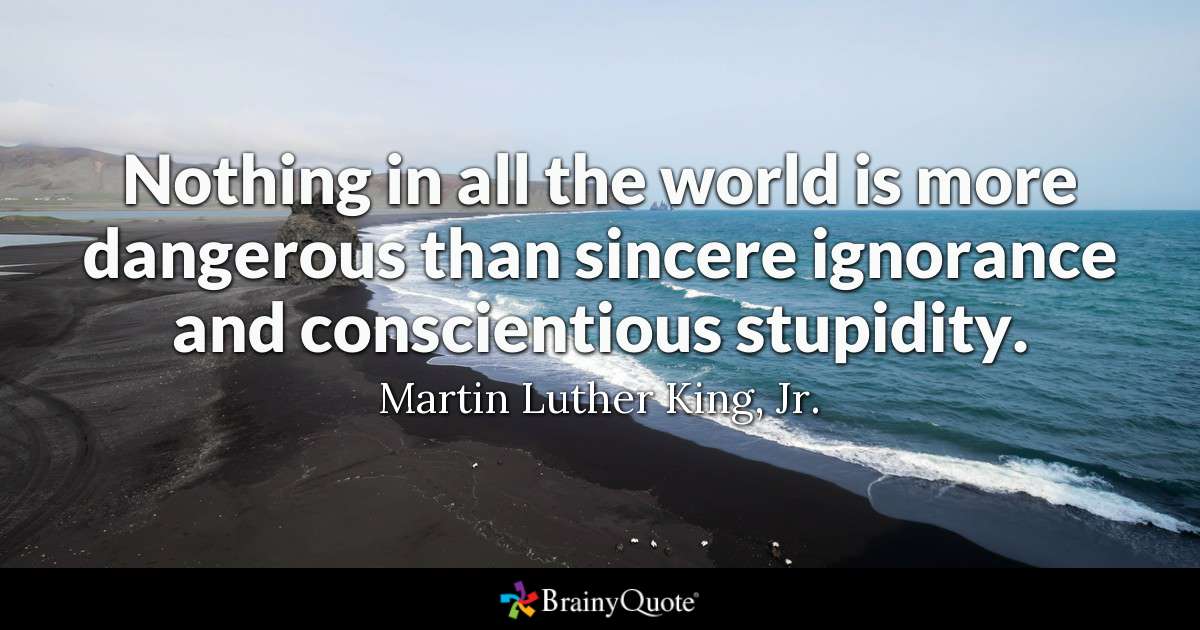
In Yogasutras, Maharishi Patanjali talks of five causes of misery – avidya, asmita, raga, dwesha and avinibesha. Avidya which means ignorance as well as wrong knowledge comes first. It is in fact the cause for other succeeding four causes, which means the primary cause of any kinds of misery is avidya.
Avidya is the primary cause of not only all individual ills, but also all social maladies, all conflicts, and misunderstandings. One of the root causes why people are brainwashed to become suicide bombers for a better afterlife is that people are exposed only to a particular kind of education repeatedly. When we have a broad based education system students will have a different perspective. They may stop believing in imaginary concepts of heaven and hell. They may also be able to see the good things in other faith systems and will not turn into fanatics.
One tends to reject and ridicule things because one knows nothing about them. That was the reason Indian culture and spirituality was not held in high esteem for a long time in the west. Barring a few scholars, the majority of the British who came to India never took any interest to understand the rich Indian heritage and culture. One of the British authorities, after visiting the Rath Yatra of Puri made derogatory remarks about the rituals, even adding the epithet ‘diabolic’ to the huge idols. Simply because he had not come across such a ritual in his own country or his own religion, another’s ritual becomes ‘diabolic. Had he taken a little pain to understand the culture of Sri Jagannath, he would have stood in awe in stead of defaming the ritual. In the same way some Indians dismiss everything from western countries as being evil, corrupt and an attack on our great culture.
Chauvinism, fanaticism, self aggrandizement etc. are all products of ignorance. During Hitler’s time people were deliberately led to believe whatever was fed into their minds by restricting information. They read only what Hitler wanted them to read. So people grew up believing theirs was the superior most race. A similar thing is happening in North Korea where people are deliberately exposed to selective information.
At the individual level, scriptures declare that man is miserable because he is ignorant of his true nature. It is only the veil of ignorance that separates the enlightened from the unenlightened. In Bhagavat Gita Arjuna finally, with the help Lord Krishan – who was his charioteer, friend, mentor and Guru all rolled into one – got rid of his ignorance and realized his own true nature.
The advaita philosophy as propounded in the Yoga Vashistha repeatedly emphasize that the world of appearance is a bondage for the ignorant only. For the one who is awakened in knowledge, there is eternal freedom.
On the other hand some think that ignorance is bliss. But such kind of bliss is out of stupidity. The bliss of stupidity and ignorance does not last long.
However if one wants to forever remain in the bliss of ignorance one may follow the American writer Elbert Hubbard who said –
“The recipe for perpetual ignorance is: Be satisfied with your opinions and content with your knowledge.”
But does knowledge really liberate? What are your views?
Knowledge comes at a cost, of unlearning, something that makes people humble. With humility comes the quality of acceptance, of the fact that bliss is elusive, the most one can do is enjoy the moments, of one’s unlearning. It may not appeal to the rigid who would instead choose to remain ignorant, of the elusive and therefore remain forever happy in denial.
LikeLiked by 1 person
Unlearning, humility – these are needed to progress in the path of right knowledge.
Thank you so much
LikeLiked by 1 person
That is a thought-provoking post. As long as knowledge signifies pursuit of truth, it is unlikely to cause atrophy. Religious indoctrination masquerading as knowledge will lead eventually lead to perdition.
LikeLiked by 1 person
An unfortunate trend that is seen in our country (propelled by vote bank politics) is that a portion of tax payers’ money is used to fund hardliner religious education. Elsewhere, rich religious countries are funding hardliner religious education in poor religious countries.Hope, human civilization wakes up to such danger.
Thanks for stopping by.
LikeLike
Knowledge is experience. An experience that can be reproduced. When Narendra Nath asked Sri Rama Krishna did you see god. Master said, not only I saw him, I can show it to you. This is knowledge based on first hand experience. It is not logical argument based, where one who’s is answering and one who is listening both do not know what they are talking. Even in Advaita, it never gives the answer what is the knowledge. It simply says not this, not this. Through the process of negation seeker himself finds his own truth.
LikeLiked by 1 person
What you say is true in spiritual context. Actually I was talking of knowledge in its simpler everyday connotation.
Thank you for stopping by.
LikeLike
Even in daily life one must distinguish between information and knowledge. Latter comes from deeper understanding and former from superficial scheming.
LikeLiked by 1 person
The depth of knowledge is what is important. Science and western knowledge is important but that doesn’t negate the validity of Vedic knowledge or something that cannot be explained through conventional understanding.
I agree with you that the seeker has to find his own truth within his own Reality which could be significantly different of others.
LikeLiked by 1 person